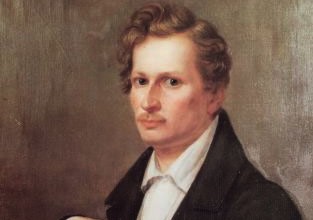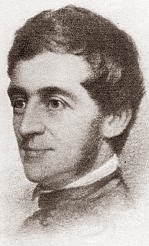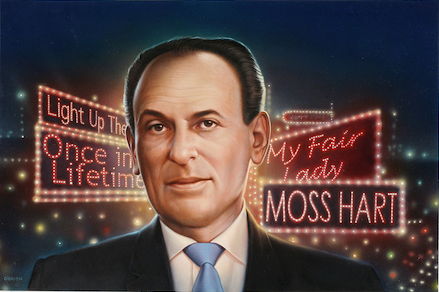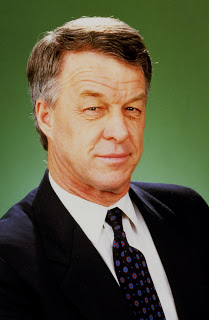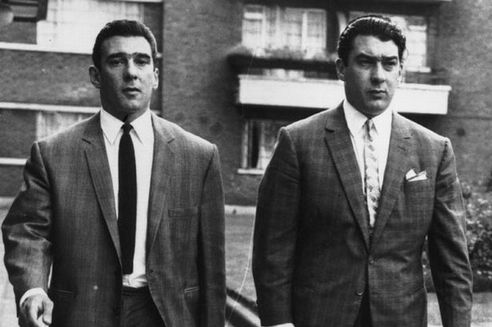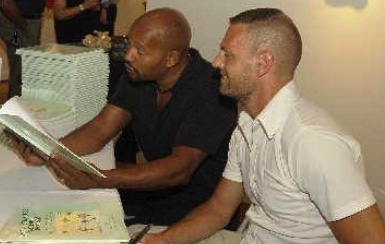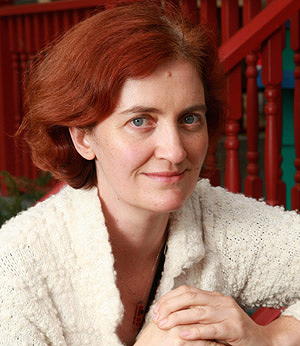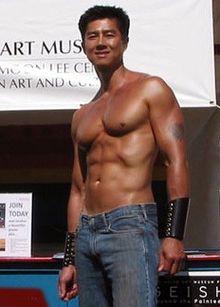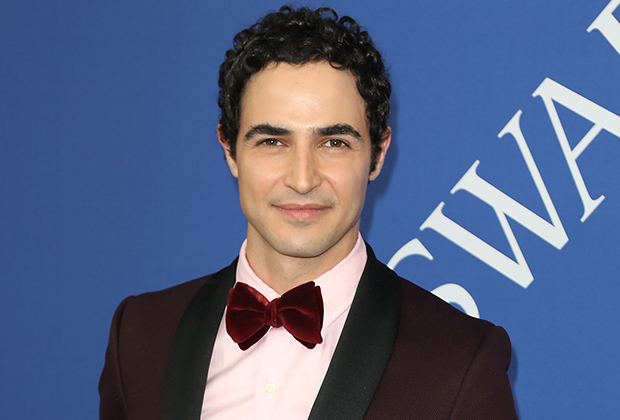|
presents THIS DAY IN GAY HISTORY based on: The White Crane Institute's 'Gay Wisdom', Gay Birthdays, Gay For Today, Famous GLBT, glbt-Gay Encylopedia, Today in Gay History, Wikipedia, and more …
Collected by Ted October 24 [{(o)}]|[{(o)}]|[{(o)}]|[{(o)}]| [{(o)}]|[{(o)}] 44 BC – Italy: The first written reference to same-sex marriage appears when Cicero insults promiscuous Mark Antony whose father Curio "established you in a fixed and stable marriage, as if he had given you a stola." A stola is a traditional garment worn by married Roman women. Cicero’s sexual implications are clear, the point of which is to cast Antony in the submissive role in the relationship and to impugn his manhood.
1679 – Sweden: Lisbeth Olsdotter is charged with abandoning her husband and children, cross-dressing, marrying a woman, bigamy, and homosexuality. She is also charged with theft and fraud related to taking a job as a soldier. She is convicted and sentenced to death.
1796 – The poems of Count August von Platen (d.1835) are homoerotic expressions of Platonic love, idealism, beauty, friendship, and longing. Platen was born in Ansbach, Bavaria, the son of an impoverished nobleman. He attended the Military Academy at Munich and the Royal Institute of Pages resulting in his commission as a lieutenant in 1815 in a regiment against France during the time of Napoleon; he, however, engaged in no action. Platen was extremely erudite, mastering a dozen languages, including literary Greek and Latin, French for social status, Persian for poetic reasons, and even English. An admirer of Michelangelo and Italian art, Platen visited Florence, Rome, Naples, Syracuse, and Sicily. While in Naples in the 1820s, he formed a homosexual friendship with the poet and painter August Kopisch, all the while perfecting the content and form of his poetry. By 1826, he had moved permanently to Italy, supported by a pension from his friend, King Ludwig I of Bavaria. Focusing his sexual urges into the artistic and creative realms, Platen transformed his passion for same-sex relations from the physical to the intellectual. On occasion, a friendship lasted only a year or so—for example, his intense relationship with a young painter, Rühl—but it nevertheless served to heighten his creative powers. His controversial, multilingual, autobiographical narrative, which contains an explicitly erotic homosexual theme, was not published until the end of the nineteenth century, under the title Diary (Die Tagebücher, 1896-1900). In his poetry, Platen employs a recurrent homoerotic image borrowed from Persian poetry, the tulip, which is a spiritual symbol for masculine love. Platen's longing for love and friendship is a persistent motif in his work. He addressed seven sonnets to "Cardenio," an Erlangen student, who is described as a young, tall, dark, and handsome man with full lips. Platen addressed an additional twenty-one sonnets to another Erlangen student, "Karl Theodor German." Embodying themes of Platonic love, friendship, longing, idealism, and beauty, Platen's sonnets express unrequited love for men. Platen's homosexuality is the subject of a vicious attack by Heinrich Heine in The Baths of Lucca. Edward Carpenter, however, expressed his appreciation for Platen in his Ioälus, An Anthology of Friendship (1902). Among German writers who admired Platen is Thomas Mann, who praised him in a lecture in 1930; Platen's poem "Tristan" (1825) inspired Mann's novella Tristan and Isolde (1903).
1820 – Seventeen year old Ralph Waldo Emerson wrote of his crush on fifteen-year old Martin Gay: I begin to believe in the Indian doctrine of eye fascination. The cold blue eyes of (blank) has so intimately connected him in my thoughts & visions that a dozen times a day & as often by night I find myself wholly wrapped up in conjectures of his character and inclinations. We have already two or three long profound stares at each other. Be it wise or weak or superstitious I must know him.
1901 – The Illinois Supreme Court refuses to overrule its 1897 decision that fellatio violates the state's sodomy law.
1904 – Moss Hart (d.1961) was an American playwright and theatre director, best known for his interpretations of musical theater on Broadway. Hart was born in New York City and grew up in Manhattan, "a neighborhood not of carriages and hansom cabs, but of dray wagons, pushcarts, and immigrants." Early on he had a strong relationship with his Aunt Kate. She got him interested in the theater and took him to see performances often. His relationship with Kate was life-forming. He understood that the theater made possible "the art of being somebody else ... not a scrawny boy with bad teeth, a funny name ... and a mother who was a distant drudge." His first hit play was written in collaboration with Broadway veteran George S. Kaufman. During the next decade, Kaufman and Hart teamed on a string of successes, including You Can't Take It With You (1936) and The Man Who Came to Dinner (1939). Though Kaufman had hits with others, Hart is generally conceded to be his most important collaborator. Throughout the 1930s, Hart also worked, with and without Kaufman, on several musicals and revues, including Face the Music (1932), As Thousands Cheer (1933), with songs by Irving Berlin, Jubilee (musical) (1935), with songs by Cole Porter and I'd Rather Be Right (1937), with songs by Richard Rodgers and Lorenz Hart. (Lorenz Hart and Moss Hart were not related.) However, he became best known during this period as a director. By far his biggest hit was the musical My Fair Lady (1956), adapted from George Bernard Shaw's Pygmalion. The show ran over seven years and won a Tony Award for Best Musical. Hart picked up the Tony for Best Director. Occasionally, Hart wrote screenplays, including Gentleman's Agreement (1947) — for which he received an Oscar nomination, Hans Christian Andersen (1952) and A Star Is Born (1954). Hart also wrote a best-selling book, Act One: An Autobiography by Moss Hart. It tells of his early days, culminating in the opening of Once In A Lifetime. It was adapted to film in 1963, with George Hamilton portraying Hart. The last show Hart directed was the Lerner and Loewe musical Camelot (1960). During a troubled out-of-town tryout, Hart had a heart attack. The show opened before he fully recovered, but he and Lerner reworked it after the opening. That, along with huge pre-sales and a cast performance on The Ed Sullivan Show, helped ensure the expensive production was a hit. Hart married Kitty Carlisle on August 10, 1946. Nonetheless, the longtime bachelor was known to be gay by many of his own friends and reportedly spent much time in therapy regarding his attraction to men. He also had bipolar disorder which, along with his feelings about his sexual orientation, caused tremendous mood swings. Carlisle did ask him if he was gay before they married and his response was that he was not. Recognition of Hart's place in queer history has been hindered by his widow, Kitty Carlisle, who has tried to prevent access to any sources that might contain evidence of his sexuality. Carlisle has sealed Hart's diaries, his correspondence with other homosexual men, and many other personal papers, and she also has discouraged Hart's associates from speaking frankly with scholarly researchers. In effect, Carlisle is continuing Hart's own attempt to "heterosexualize" his life story by omitting details of his close relationships with Dore Schary and other homosexual men who are mentioned in his memoir, Act One (1959). In the summer of 1929, Dore Schary became one of Hart's closest friends. Letters, written in later years by Hart to Schary, suggest that they developed a passionate romantic relationship. In a letter apparently written in late 1939, Hart revealed his feelings for Schary: "we shall once again lay in each other's arms and taste the sweetness of sin—I love you very much." Prior to his marriage, one of his lovers was Gordon Merrick, whom he met when Merrick was acting in the original Broadway production of The Man Who Came to Dinner. Gordon Merrick was then an actor and later became a literary agent and writer. According to his Merrick's partner, Charles Hulse, Merrick used Hart as the model for playwright Meyer Rapper, the central character of The Lord Won't Mind (1970), publicized as the first openly gay novel on the New York Times bestseller list. Author William McBrien, in his biography of Cole Porter, stated that Hart frequented the Ritz Bar in Paris, a known hangout for gays and lesbians in the 1930s.
1912 – The Arizona Supreme Court rules that fellatio is not outlawed by the term "crime against nature."
1926 – The New York Times printed a book review of "The Doctor Looks at Love and Life" by Dr. Joseph Collins. In the chapter on homosexuality, Dr. Collins countered the claim that homosexual love is pathological and that homosexuals are psychopaths or neurotic, saying that he knew many well-balanced homosexuals of both sexes who have distinguished themselves in various fields from arms to the pulpit. He also stated that "Genuine homosexuality is not a vice, it is an endowment."
1933 – Neal Blewett was an Australian Labor Party member of the Australian House of Representatives representing Bonython, South Australia from 1977 to 1994. Under Bob Hawke's governernment, he served as Minister for Health, and later as Minister for Trade and Overseas Development. When Paul Keating became Prime Minister, he became Minister for Social Security until he retired from politics in 1994. In 1994, Neal Blewett was appointed Australian High Commissioner to the United Kingdom, as which he served until 1998. At the same time, he was on the Executive Council of the World Health Organizatio Although married, Blewett was definitely gay. He was married for 26 years to Jill Blewett, a renowned Australian playwright, with whom he had two children. Jill died when she was accidentally electrocuted in their home in October 1988. The following year, he moved in with his long-term partner Robert Brain, whom he had met as a university student 50 years previously. When a radio station claimed that he was gay, he successfully sued for defamation. But in 2000, he revealed he was homosexual in a May 2000 issue of The Age's Good Weekend magazine, which profiled his relationship with Brain.
1933 – Ronnie Kray (d.1995) and his twin brother Reggie Kray (d.2000) were the foremost perpetrators of organised crime in London's East End during the 1950s and 1960s. Ronald, commonly referred to as Ron or Ronnie, most likely suffered from paranoid schizophrenia. The Krays were involved in armed robberies, arson, protection rackets, violent assaults including torture and the murders of Jack "The Hat" McVitie and George Cornell. As West End nightclub owners, they mixed with prominent entertainers including Diana Dors, Frank Sinatra, Judy Garland and politicians. The Krays were highly feared within their social environment, and in the 1960s they became celebrities in their own right, being photographed by David Bailey and interviewed on television. Ronnie was definitely gay - and Reggie may have been. During his life, Ronnie Kray was openly gay, refusing to hide his orintation from either the law or his fellow gangsters, but sometimes claimed to be merely bisexual - a nod to the disapproving social attitudes at the time. "Ron discussed his homosexuality with only a very few people, but put simply it was a part of his nature he discovered, explored and enjoyed," biographer Laurie O'Leary said. "He was at ease with it. It did not seem to conflict with his "tough guy" image or cause him any problems on any level." The members of the twins' gang, known as the Firm, were overwhelmingly tolerant of Kray's homosexuality. "Even if they objected, Ron just smiled at them and told them they didn't know what they were missing," said O'Leary. Author John Pearson, who interviewed then both extensively, says Ronnie Kray was gay and that Reggie Kray was bisexual. He said they had an incestuous sexual relationship with each other because they could not be open about their sexualities. Pearson said in a book about the twins: "Homosexuality was nothing to be proud of in the East End. But as they became more notorious, Ronnie became quite shameless about it. According to Ron in the early days they had sex with each other because they were terrified about people finding out." Pearson has written three books on the subject of the infamous twins, and claims that Ronnie told him about the relationship during on of many interviews. "According to Ron, for quite a while they were so concerned to keep their secret hidden that the only sex they had was with each other." Ronnie's homosexuality came into the public eye when an exposé in the tabloid newspaper Sunday Mirror alleged that Ron had had a sexual relationship with Lord Boothby, a UK Conservative Party politician. Although no names were printed, when the twins threatened the journalists involved in the story and Boothby threatened to sue, the newspaper backed down, sacked its editor, printed an apology and paid Boothby £40,000 in an out-of-court settlement. As a result, other newspapers were unwilling to uncover the Krays' connections and criminal activities. The police investigated the Krays on several occasions, but the twins' reputation for violence meant witnesses were afraid to come forward to testify. There was also a political problem for both main parties. It was in the interests of neither the Conservative Party to press the police to end the Krays' power lest the Boothby connection was again publicised and demonstrated, nor the Labour Party as their MP Tom Driberg was also rumoured to have had a relationship with Ron. They were eventually arrested on 9 May 1968 and convicted in 1969 by the efforts of a squad of detectives led by Detective Superintendent Leonard "Nipper" Read, and were both sentenced to life imprisonment. Ronnie remained in Broadmoor Hospital until his death on 17 March 1995, but Reggie was released from prison on compassionate grounds in August 2000, eight weeks before his death from cancer. Reggie was closeted, although Ronnie had often claimed his brother too was bisexual. After his death a former gang member, Bradley Allardyce, claimed that he and Reggie had been more than just good friends. He spent three years in Maidstone Prison, four cells along the landing from Reggie Kray, who was serving life for the murder of Jack 'the hat' McVitie. Both denied they were more than just friends, until after Reggie's death in 2000, when Allardyce stated "I am openly admitting for the very first time that we had a sexual relationship." Ronnie Kray was openly gay but Reggie always denied what many suspected - that he was also attracted to men. Friends of Kray consider Allardyce to be the love of his life. They spent most of their time at Maidstone Prison in each other's company.
1960 – Bradley Darryl BD Wong is an American actor, best-known for his roles as Dr. George Huang on Law & Order: Special Victims Unit, as Father Ray Mukada on HBO's Oz, Henry Wu in the movie Jurassic Park, and for his starring role as Song Liling in the Broadway production of M. Butterfly. Wong gained attention for his Broadway debut in M. Butterfly opposite John Lithgow. The play won multiple awards, including several for Wong. He is notable as the only actor to be honored with the Tony Award, Drama Desk Award, Outer Critics Circle Award, Clarence Derwent Award, and Theatre World Award for the same role. In 2008, he starred in the one-man show Herringbone, in which he portrays 11 roles, at the McCarter Theatre at Princeton University. Wong, who is openly gay, began a long-term relationship with talent agent Richie Jackson in 1988. In 2000, Wong had twin sons: Boaz Dov, who died 90 minutes after birth, and Jackson Foo Wong. They were born through a surrogate mother, using Wong's sperm and an egg donated by Jackson's sister. In 2003, Wong wrote a memoir about his experiences with surrogacy titled Following Foo: the Electronic Adventures of the Chestnut Man. Wong and Jackson ended their relationship in 2004. Wong very strongly identifies as a gay man. Hence, he has been a visible presence at AIDS-related charity functions and in gay and lesbian community events, as well as at events sponsored by the Asian Pacific Islander communities. Wong has appeared at the GLAAD Awards, made promotional spots for the gay and lesbian television newsmagazine In the Life, and worked in various ways to further understanding among both Asians and non-Asians, gays and non-gays, about the experience of being both gay and Asian.
1964 – Dan Mathews is the Senior Vice President of People for the Ethical Treatment of Animals. He is known for heading PETA's most controversial and attention-getting campaigns, including the "I'd Rather Go Naked Than Wear Fur" ads, as well as campaigns involving celebrities such as Morrissey, Pamela Anderson, Pink, and Paul McCartney. He started poor, was bullied in high school, worked at McDonalds and as a model to put himself through American University, and after graduating started at PETA as a receptionist. In 2000, he was named by gay lifestyle magazine Genre as one of the most influential people of the new century. When asked by the magazine whom he considered an influential gay person, he replied, spree killer "Andrew Cunanan, because he got Gianni Versace to stop using fur." In 2007, Mathews was ranked 37th in Out magazine's "50 Most Powerful Gay Men and Women in America". Mathews has written a memoir, Committed: A Rabble-Rouser's Memoir, which he characterized as "an adventure story. It's like 007 wearing freaky outfits". The book tells the story of how he became a public person, the various exploits he's undertaken for PETA, and different campaigns he has done. 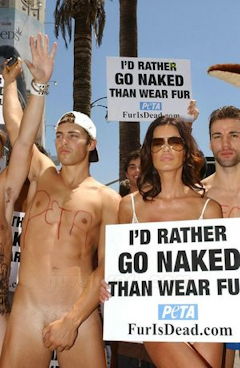 In May 2009 he commented on the actions of the governor general of Canada who, in participating in an Inuit tradition, consumed a raw seal heart. He is quoted as saying to the Toronto Star, "It amazes us that a Canadian official would indulge in such bloodlust. It sounds like she's trying to give Canadians an even more Neanderthal image around the world than they already have." Although Mathews admits to being attracted by extremes, he states that he and PETA engage exclusively in legal activities, but they do not necessarily condemn the actions of animal rights extremists.
1966 – Albert Toney III is a civil rights activist who retired from the Worcester Massachusetts Police Department after being shot in the line of duty. Albert Toney III was born and raised in Worcester, Massachusetts. He is the son of a Massachusetts State Police Sergeant and an elementary school teacher. In 1987, Toney joined the Worcester Massachusetts Police Department, and in 1991, was wounded in a shooting incident that killed his then life partner, Robert Domiano Jr, and another friend, John Ellison, who later died from the result of his injuries. The shooter was eventually sentenced to life imprisonment for his actions after a nationwide search took place and the perpetrator found. Toney became the first openly gay police officer on the Worcester Police Department and publicly declared that he would focus his efforts on gay civil rights. He retired from the police force in 1995 as a result of his injuries from the shooting, but continued to educate others on homosexuality and the stigmas attached to being open about it to the public. In 2001, the Massachusetts Supreme Judicial Court overturned the 1992 first-degree murder conviction of the person who wounded Toney in 1991, and ordered a new trial based on how the original presiding judge instructed the jury on the elements of first-degree murder. On March 31, 2003, the shooter was re-convicted of first-degree murder in the Worcester Superior Court and was again sentenced to life imprisonment. Albert Toney III began educating and promoting equality for the lesbian, gay, bisexual and transgender (LGBT) community after retiring from the police force as a result of his injuries sustained in a shooting in 1991. He became involved with his future husband, Keith Fitzpatrick, in 1999. The pair were actively involved in the gay civil rights movement, becoming the faces of gay marriage in Massachusetts while educating people about the importance of recognizing gay and lesbian relationships and families. In 2004, they were featured in a documentary, "Same Sex America", that covered the contentious debate over same-sex marriage in Massachusetts. They were also featured in a televised public service announcement, "Its Wrong to Vote on Rights - The Toneys", regarding a proposed ballot initiative within the Massachusetts Legislature that involved gay marriage. In 2004, Albert Toney III and Keith Fitzpatrick were legally married in the state of Massachusetts, and became the first same-sex marriage in their town of Holden. In March 2009, they became plaintiffs in a lawsuit filed by GLAD (Gay & Lesbian Advocates & Defenders), Gill v. Office of Personnel Management et al., challenging the constitutionality of the Defense of Marriage Act (DOMA), which prevented the federal government from having to recognize legal state-sanctioned same-gender marriages. Their section of the lawsuit resulted when Keith was subsequently denied a U.S. passport in his new married name after having provided their marriage license as acceptable proof of a legal name change. In June 2009 the Toney's became the first successful challenge against DOMA when the Department of State effectively changed the law so that legal state-sanctioned same-gender marriage licenses would be accepted as proof of a legal name change. This would later become the only successful challenge against DOMA before the Supreme Court of the United States (SCOTUS) ruled on June 26, 2013 that the law was unconstitutional. Albert was also successful in challenging Massachusetts' pension laws when he raised the issue of retirees in same-sex marriages being excluded from being able to cover their spouses because same-sex marriage did not exist, nor was it foreseen, at the time of their retirement. Legislation was approved to allow retirees to change their pension retirement option to one that would pass their retirement benefits on to their spouses in the event of their own death. In 2012 the Toney's published a diversity and anti-bullying themed children's story book entitled, "Snions, Stiraffes and Frish...Hooray! Gonzo Finds Fairview Valley". Their efforts of spreading the message of civility, kindness, equality and inclusion to young readers was covered by local news outlets.
Donoghue's well-received first novel, Stir-Fry (1994), is a semiautobiographical account of three college women living in Dublin. The book relates the lesbian coming-of-age of the protagonist, Maria Murphy, and offers insights into attitudes about homosexuality in contemporary Irish society. Donoghue has also completed a screenplay for an anticipated film adaptation of Stir-Fry. In 1995 Donoghue published Hood, a novel also set in Dublin but one that explores the complexities of a mature lesbian relationship. Although the novel details one traumatic week in the life of the protagonist, Pen, Donoghue's imaginative and skillful use of flashbacks over a thirteen-year period serves as a broad and effective counterpoint to Pen's daily lesbian existence. Hood was awarded the American Library Association's Gay, Lesbian, and Bisexual Book Award for Literature in 1997. Donoghue's more recent fiction reveals a departure from her earlier works. Kissing the Witch: Old Tales in New Skins (1997) is an innovative retelling of thirteen stories that update traditional fairy tales, mostly with lesbian characters and outcomes. Slammerkin (2000) is based on the true story of an eighteenth-century prostitute and seamstress hanged for the murder of her employer. The rich and detailed evocation of the underside of eighteenth-century London is testimony not only to Donoghue's creativity but also to her scholarly background and knowledge of this period. The Woman Who Gave Birth to Rabbits (2002), a sequence of short stories about incidents in the history of the British Isles, was a finalist for the 2003 Stonewall Book Award. Life Mask (2004) tells the true story of three people who lived in the harsh glare of publicity in 1790s London: the Honourable Mrs Anne Damer (a widowed sculptor with a Sapphic reputation), the Earl of Derby (a fabulously wealthy politician who founded the Derby horserace), and Eliza Farren (the leading comedy actress on the British stage). The novel was a finalist for the 2005 Lambda Award and the Ferro-Grumley Award, as well as the Stonewall Book Award. One of Donoghue's recent books is a collection of nineteen short stories, Touchy Subjects (2006), about taboos and embarrassments, featuring characters who are old and young, queer, straight, and simply confused. They are set in locales from Ireland to Louisiana, and from Canada to Tuscany. Donoghue is also the editor of Poems between Women: Four Centuries of Love, Romantic Friendship, and Desire (1998) and The Mammoth Book of Lesbian Short Stories (1999). After several years of commuting between England, Ireland, and Canada, in 1998 Donoghue settled in London, Ontario, where she lives with her female partner, Chris Roulston, a professor of French and women's studies at the University of Western Ontario. and their two children. Her most recent novel, Room was shortlisted for the 2010 Canadian Governor-General's Awards and won and won the 2011 Commonwealth Writers' Prize, making her an instant Canadian celebrity. "I'm happy to be claimed by both my homelands," said Donoghue, who received Canadian citizenship in 2004. "I've been in Canada 12 years now, and even though I still sound Irish, I think there's been a great influence on me."
1972 – Van Darkholme is a Vietnamese American gay pornographic actor, director, an artist and photographer. Darkholme is among the few Asian American men working in Western gay porn as a director and actor, and is of Vietnamese descent. Much of his work as a director and actor contains bondage and particularly shibari, the Japanese art of rope bondage, a specialty within BDSM cultures. Van Darkholme (sometimes misspelled as "Darkholm") is a screen name; his birth name has been kept private. Throughout the 1990s, Darkholme was a fashion and photographic model. Darkholme's book of bondage photography, Male Bondage, was published by Bruno Gmünder in June 2006. In 2008, The San Francisco-based BDSM studio Kink.com hired Darkholme, where he currently directs gay pornography with an emphasis on bondage and wrestling. Darkholme self-identifies as a gay man.
1980 – (Zachary E.) Zac Posen is an American fashion designer. Posen was born and raised to a Jewish family in New York City, residing in the SoHo neighborhood of lower Manhattan. He is the son of Susan (née Orzack), a corporate lawyer, and Stephen Posen, an artist. His interest in fashion design started early, and as a child he would steal yarmulkes from his grandparents' synagogue to make ball dresses for dolls. He attended a private school in Brooklyn and in his sophomore year interned with fashion designer Nicole Miller. As a teen, he also won a Scholastic Art and Writing Award. At age 16 he enrolled in the pre-college program at Parsons The New School for Design. For three years, Posen was mentored by curator Richard Martin at The Costume Institute of The Metropolitan Museum of Art. At age 18, he was accepted into the womenswear degree program at London's Central Saint Martins College of Art and Design at the University of the Arts London. In 2001, Posen constructed a gown entirely made from thin leather strips and dressmaker hooks and eyes that was displayed by the Victoria and Albert Museum and featured in their "Curvaceous" exhibition. Upon returning to New York in 2001, Posen set up an atelier in his parents' living room, while they gave him a USD$15 allowance. In October of the same year, he was chosen to present a capsule collection as part of GenArt's Fresh Faces in Fashion New York 2001. He received a grant for $20,000. After his first runway show in 2001, Posen was courted by fashion titans Yves Carcelle, president of LVMH Fashion Group; Sidney Toledano, CEO and director of Christian Dior S.A.; and Domenico De Sole, president and CEO of Gucci Group NV. Following the success of this presentation, Posen established his design studio in Tribeca. In 2004, high-end urban fashion brand Sean John made an investment deal with Posen. Ashley Olsen interned with Posen in 2005 while a student at The Gallatin School of Individualized Study, an undergraduate college within New York University. In April 2008, Posen's capsule collection created in collaboration with Target, Zac Posen for Target, was released in 75 stores in Australia. A preview of the collection was shown during March's L'Oreal Melbourne Fashion Festival. At the 2012 Academy Awards, Glenn Close wore a Posen gown on the red carpet, as did both Reese Witherspoon and Naomi Watts at the 2013 Golden Globe Awards. Other notables who have worn Posen creations on red carpets include Uma Thurman at the 2013 Met Ball); Sofia Vergara at the 2014 Golden Globes; Anna Chlumsky at the 2014 Emmy Awards; and Rita Ora at the 2014 AMA Awards. On December 18, 2012, Posen was announced as an official judge of Project Runway Season 11 on Lifetime Television.In February 2014, Posen partnered with another major retailer, David's Bridal, to create Truly Zac Posen, a line of affordable bridal gowns. The line was Posen's first official bridal collection. Also in 2014, he was named Creative Director for Brooks Brothers, tapped to modernize their signature women's clothing and accessories line. In 2014, he introduced a more casual Pre-Fall 2015 Trunk Show collection. In recent collaborations, Posen was selected to redesign the uniforms for Delta Air Lines 60,000 employees. These uniforms are set to appear on Delta Air Lines staff members, from flight attendants to customer service, in 2017. Posen lives in the SoHo neighborhood of Lower Manhattan, with his boyfriend, Christopher Niquet and their three dogs.
1981 – The first National Conference on Lesbian and Gay Aging was held in California, sponsored by the National Association for Gay and Lesbian Gerontology. It sought to "dispel myths about older lesbians and gay men, advance research, establish programs and services for lesbian and gay elders, and encourage and provide support for lesbian and gay gerontologists."
[{(o)}]|[{(o)}]|[{(o)}]|[{(o)}]| [{(o)}]|[{(o)}] |
